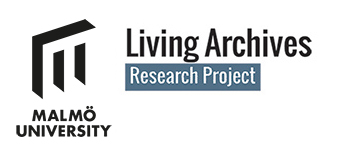Update Nov. 16—The publication is launched on medium.com
A CALL FOR SUBMISSIONS TO AN ONLINE PUBLICATION
Extended deadline: Sep 21, 2015
Open Data, Open Knowledge, Open Source … the terrain is shifting. 10 or even 5 years ago it was easier to take a stance that open data was ‘good’ and restricted data was ‘bad’. Post Edward Snowden, general wariness of formerly innocent data gathering is growing, at the same time as the Internet of Things promises increased networking but offers uneven possibilities regarding openness of data. The Living Archives research project proposes a digital publication to explore the theme of openness in the age of open everything (data, access, source, knowledge, culture, heritage …).
EXPRESSION OF INTEREST 29 MAY 2015 | FINAL SUBMISSION 21 SEP 7 SEP 2015
We seek to gather reflections and provocations from a diverse range of voices, inviting artists, computer programmers, activists, researchers, archivists, urban foragers or performers of all sorts, to join us in thinking critically about how openness is changing social values and influencing how information is shared. Can we reach a better understanding of data’s role in manipulating personal and collective forms of identification and behaviour?
Openness might best be described as a state of being. A porousness and receptivity, that allows for the exchange of energy, matter and ideas. Recently, however, the word has come to define the terms by which our data can be used. Our analogue, biological and digital impressions circulate independently from us. Openness attempts to signal transparency and unprecedented access to information, whilst at the same time alluding to equality and fairness of provision. In this new quest for openness, the boundaries between what belongs to us and to others, what is public and private, are rapidly disappearing.
A partial list of questions includes:
- What kind of data is released and expressed by the body?
- How is power encoded in the code?
- Is the open culture movement evading or confronting the shadows of institutional memory?
- Is bio waste the real open source?
- What about ‘big data exhaust’, and data exhaustion?
- Who benefits from this opening of everything, and who does not?
- What are the performances of open data – what data? for whom? and by whom?
Formats
We invite a variety of formats for proposals. We are happy to receive text, images, audio, video, code, performance or any combination thereof. Propose something that best conveys your ideas or your provocations. The outcome will be a Creative Commons licensed web-based compendium, which will also be adapted into a print publication. (Note: If you choose to submit a written text, please keep it less than 3000 words).
Although we encourage and welcome academic submissions, we hope to bridge a number of disciplines and perspectives, offering provocations that can be utilized and understood in wider cultural contexts. While this is not fully a peer-reviewed publication, contributions will receive reviews and comments from the Living Archives research group.
DEADLINES
Expression of interest: 29 May 2015
(For text submissions this can include a 200-word outline / ideas sketch)
Final submission deadline: 21 7 September 2015
Send expression of interest and submissions to richard.topgaard@mah.se
(For files larger than 10 MB, please share through wetransfer.com or Dropbox)
Enquires: susan.kozel@mah.se, temi.odumosu@mah.se
If you want to distribute this call further, feel free to use the Openness ‘logo’, crafted by Jacek Smolicki and published under the Creative Commons Attribution (CC:BY) license.
This publication occurs at the mid-point of the Living Archives project (with a release date of November 2015). We plan to have a second publication in this series in 2017 so you can propose an ‘open’ set of questions or experiments that may be developed by a second submission in 18 months.




